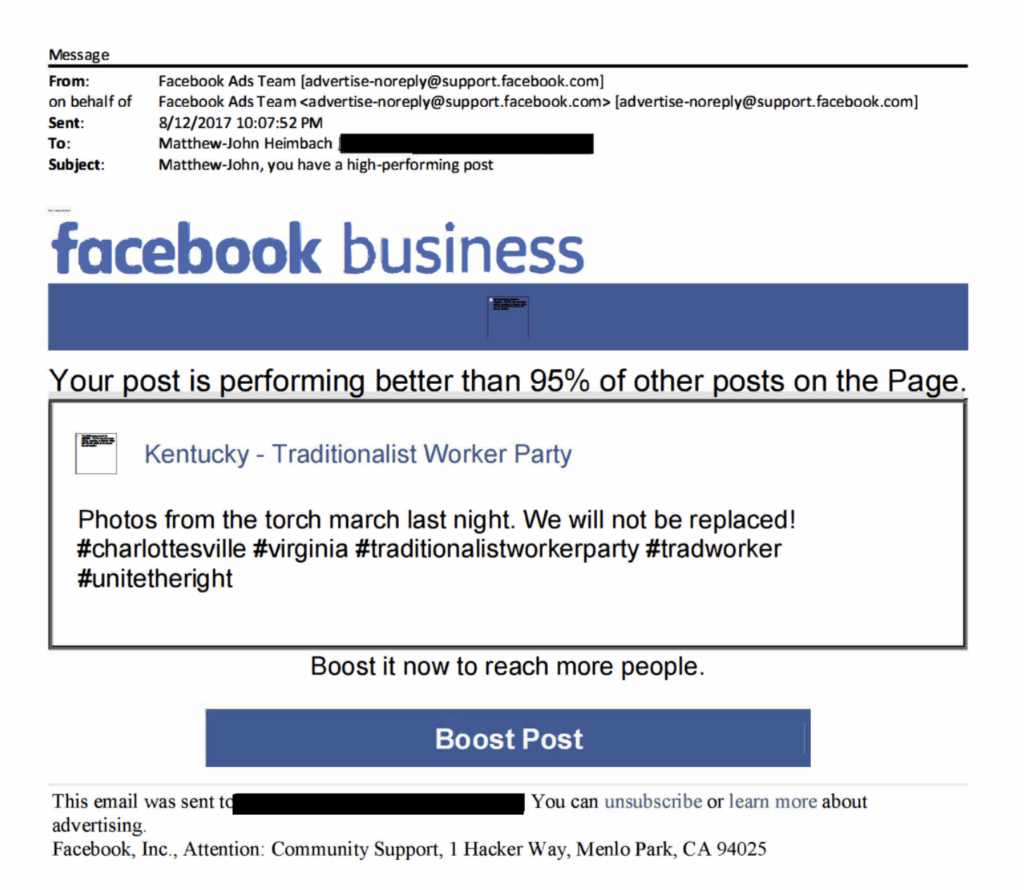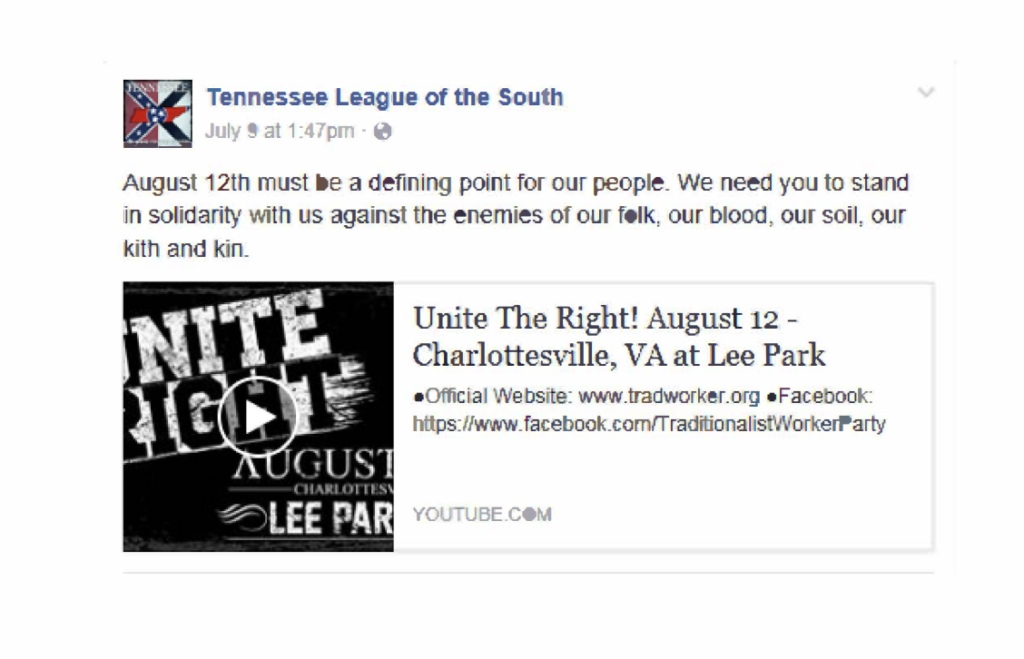Evidence in Trial of 2017 Unite the Right Rally Organizers Reveals Role of Facebook, Discord
Justin Hendrix / Mar 17, 2022Integrity First for America (IFA), a nonprofit organization that led a federal lawsuit against the organizers of the deadly 2017 Unite the Right rally in Charlottesville, Virginia, today released the evidence exhibits used at the trial. According to an IFA blog post, the release includes full trial transcripts, witness and expert testimony, and documents that were presented to the jury, which found in favor of nine individuals injured in the violence that day. The documents shed light on the role that social media-- in particular Facebook and Discord-- played in enabling the rally organizers.
"At the end of the day, our Charlottesville case was about securing justice for the plaintiffs and holding the defendants accountable – and the financial, legal, and operational toll on these extremists has been significant," said Amy Spitalnick, IFA Executive Director. "In doing so, this case also allowed us to tell the full story of what happened that deadly weekend, and pull back the curtain on how these white supremacists operate and spread their violent extremism. We’re making this evidence publicly accessible to further that goal – especially with our case now serving as a model for other litigation."
The blog post that accompanies the release says that "the huge volume of Facebook, Discord, Twitter, and Instagram posts contained in the evidence illustrate how central social media was to the organizing of Unite the Right. These companies are often criticized for refusing to crack down on white supremacist and neo-Nazi activity on their platforms," says the IFA post. "In plaintiff exhibit 1811, Facebook actually encouraged one of the white supremacist defendant groups to reach more viewers by advertising their post – a series of photos from the torch march where neo-Nazis terrorized students and violently assaulted counterprotesters."
The referenced email message is to Matthew Heimbach, a founder of the neo-Nazi Traditionalist Worker Party.

Other images used at the trial show how white supremacist groups used Facebook pages and posts to recruit participants to the rally, such as the Tennessee League of the South.

Unicorn Riot, a nonprofit journalist collective, published the contents of Discord servers used by the Unite the Right organizers in 2017, which IFA complemented with material from the full servers of Discord acquired through subpoena. The evidence repository released today contains a substantial amount of correspondence on Discord.
Heather Heyer, a counterprotestor at the 2017 rally in Charlottesville, was killed when James Alex Fields rammed his car into a group of activists who sought to condemn the white supremacist march. The evidence repository contains Discord messages between the organizers in which they discuss "drawing counterprotesters into confrontations," "weaponizing flagpoles" and "running down counterprotesters with cars," according to IFA.
"Integrity First for America's lawsuit is one of the few ways that institutions have held Unite the Right organizers accountable," said Melissa Ryan, the CEO of Card Strategies, a consultancy that advises organizations countering extremism and online toxicity. "Their commitment to transparency will help the public better understand the motivations and organization of those responsible. It also serves as a reminder of the need to hold those behind the January 6 coup attempt accountable."
The House Select Committee investigating the January 6 attack on the U.S. Capitol has a mandate to investigate the role of social media in fostering the conditions for the insurrection. One name familiar to January 6 investigators-- that of Anthime Joseph “Tim” Gionet, AKA "Baked Alaska," who filmed himself entering the Capitol-- also appears in the Charlottesville evidence repository.
"In so many ways, Unite the Right previewed the extremism that’s followed – including the use of social media to plan, promote, and engage in violence. It’s clear that Facebook and other social media companies didn’t just look the other way. Rather, they enabled the violence by refusing to deplatform extremists or address the algorithms that promote their hate, disinformation, and actions," said IFA's Spitalnick. "These white supremacists used to have to meet in the woods, in white hoods. Now, social media has effectively become the Klan den of the 21st century, allowing these extremists to come together in unprecedented ways – with deadly consequences."
A more recent analysis released by the Anti-Defamation League (ADL) earlier this year found that social media companies, including Facebook, continue to fail at reliably flagging white supremacist discussions.
“Extremists intentionally seed disinformation and build communities online to normalize their messages and incite violence,” said Dr. Libby Hemphill of the University of Michigan School of Information, the report author and an ADL Belfer Fellow. “With all their resources and these revealing findings, platforms should do better. With all their power and influence, platforms must do better.”
Authors
